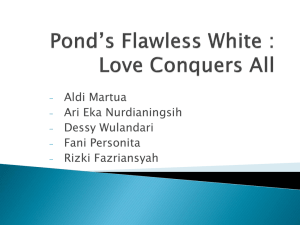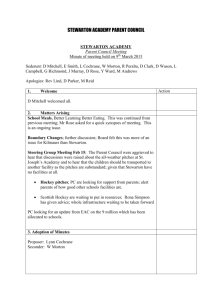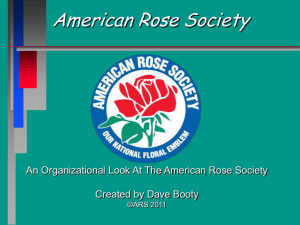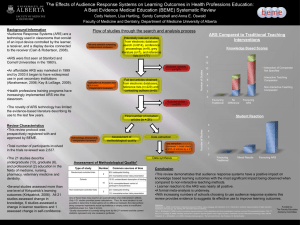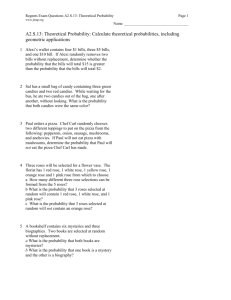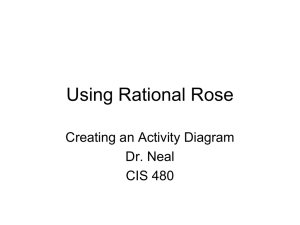May 2012 - American Rose Society
advertisement
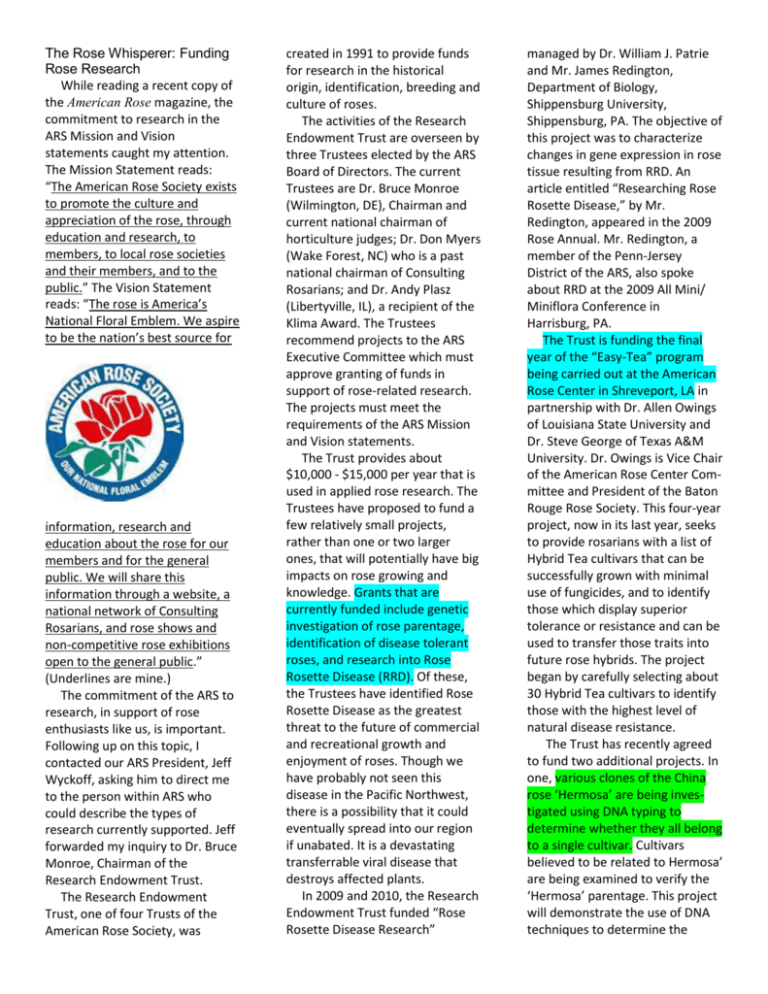
The Rose Whisperer: Funding Rose Research While reading a recent copy of the American Rose magazine, the commitment to research in the ARS Mission and Vision statements caught my attention. The Mission Statement reads: “The American Rose Society exists to promote the culture and appreciation of the rose, through education and research, to members, to local rose societies and their members, and to the public.” The Vision Statement reads: “The rose is America’s National Floral Emblem. We aspire to be the nation’s best source for information, research and education about the rose for our members and for the general public. We will share this information through a website, a national network of Consulting Rosarians, and rose shows and non-competitive rose exhibitions open to the general public.” (Underlines are mine.) The commitment of the ARS to research, in support of rose enthusiasts like us, is important. Following up on this topic, I contacted our ARS President, Jeff Wyckoff, asking him to direct me to the person within ARS who could describe the types of research currently supported. Jeff forwarded my inquiry to Dr. Bruce Monroe, Chairman of the Research Endowment Trust. The Research Endowment Trust, one of four Trusts of the American Rose Society, was created in 1991 to provide funds for research in the historical origin, identification, breeding and culture of roses. The activities of the Research Endowment Trust are overseen by three Trustees elected by the ARS Board of Directors. The current Trustees are Dr. Bruce Monroe (Wilmington, DE), Chairman and current national chairman of horticulture judges; Dr. Don Myers (Wake Forest, NC) who is a past national chairman of Consulting Rosarians; and Dr. Andy Plasz (Libertyville, IL), a recipient of the Klima Award. The Trustees recommend projects to the ARS Executive Committee which must approve granting of funds in support of rose-related research. The projects must meet the requirements of the ARS Mission and Vision statements. The Trust provides about $10,000 - $15,000 per year that is used in applied rose research. The Trustees have proposed to fund a few relatively small projects, rather than one or two larger ones, that will potentially have big impacts on rose growing and knowledge. Grants that are currently funded include genetic investigation of rose parentage, identification of disease tolerant roses, and research into Rose Rosette Disease (RRD). Of these, the Trustees have identified Rose Rosette Disease as the greatest threat to the future of commercial and recreational growth and enjoyment of roses. Though we have probably not seen this disease in the Pacific Northwest, there is a possibility that it could eventually spread into our region if unabated. It is a devastating transferrable viral disease that destroys affected plants. In 2009 and 2010, the Research Endowment Trust funded “Rose Rosette Disease Research” managed by Dr. William J. Patrie and Mr. James Redington, Department of Biology, Shippensburg University, Shippensburg, PA. The objective of this project was to characterize changes in gene expression in rose tissue resulting from RRD. An article entitled “Researching Rose Rosette Disease,” by Mr. Redington, appeared in the 2009 Rose Annual. Mr. Redington, a member of the Penn-Jersey District of the ARS, also spoke about RRD at the 2009 All Mini/ Miniflora Conference in Harrisburg, PA. The Trust is funding the final year of the “Easy-Tea” program being carried out at the American Rose Center in Shreveport, LA in partnership with Dr. Allen Owings of Louisiana State University and Dr. Steve George of Texas A&M University. Dr. Owings is Vice Chair of the American Rose Center Committee and President of the Baton Rouge Rose Society. This four-year project, now in its last year, seeks to provide rosarians with a list of Hybrid Tea cultivars that can be successfully grown with minimal use of fungicides, and to identify those which display superior tolerance or resistance and can be used to transfer those traits into future rose hybrids. The project began by carefully selecting about 30 Hybrid Tea cultivars to identify those with the highest level of natural disease resistance. The Trust has recently agreed to fund two additional projects. In one, various clones of the China rose ‘Hermosa’ are being investigated using DNA typing to determine whether they all belong to a single cultivar. Cultivars believed to be related to Hermosa’ are being examined to verify the ‘Hermosa’ parentage. This project will demonstrate the use of DNA techniques to determine the parentage and relationship of various Old Garden Roses that have long been a topic of debate by OGR experts. This research will be carried out by a group of ARS members in California. The most recently approved project is a three-year project to study the management of RRD. The objectives of the project are to determine: 1) if Rosarians can be proactive in managing RRD in their gardens, and 2) if best management practices for RRD other than eliminating bushes with disease symptoms can be developed. This project, which is beginning in 2012, is headed by Dr. Mark Windham of the University of Tennessee, Professor and Distinguished Chair in ornamental diseases and past president of the Houston Rose Society. An advisory panel of ARS members from the Carolina and Tenarky districts will review the experimental plans and suggest ways that the outcomes of this project will best serve rosarians nation-wide. Among this advisory council are Ann Peck of the Asheville/Blue Ridge Rose Society, who has extensively studied Rose Rosette Disease, and Dr. Don Myers, representing the American Rose Society and the ARS Research Endowment Trust. The ARS Research Endowment Trust, like the other ARS trusts, is funded by contributions, primarily from ARS members. The Trust has not recently solicited contributions because it did not want to detract from other important fund raising efforts of the ARS. However, if anyone would like to assist rose research, donations can be made to the ARS Research Endowment Trust. Near the back of each issue of American Rose there is a “Gifts and Contributions” section. Part of that section includes instructions for “How to make a charitable contribution to the ARS.” Under “Step 2” of this section, a person interested in supporting the research trust can check the box marked “ARS Research Endowment Trust” when making a contribution. Contributions can be directed to other ARS activities as well by checking the appropriate boxes on this same form. Contributions can also be sent electronically by visiting the ARS at http://www.ars.org/ and following the donor links. Finally, it is important for our readers to know that in each issue of American Rose there are one to two pages dedicated to “Recent Rose Research” which summarize abstracts of current rose-related research reported in scientific journals throughout the world. The Rose Whisperer is appreciative of President Jeff Wyckoff, Dr. Bruce Monroe and Jack Kiley, our Pacific Northwest Director, for providing information that formed the basis for this article. I encourage all of our TriCity Rose Society members who are not members of the American Rose Society to send in your membership today to support the ARS in its commitments to its stated Mission and Vision, joining me and others of the Tri-City Rose Society by supporting the ARS with your annual dues. After all, the cost of a year’s ARS membership is about the price of two roses from either a local or mail-order nursery. It is a great value that many of us can afford. Also be aware that ARS offers trial memberships to members of any local rose society for only $5. New members of the TCRS are eligible to receive a free four month trial membership to ARS. If you are a new TCRS member this year and have not received any copies of American Rose, please contact Richard or Linda Kerkof, our Membership Chairpersons, to get your trial membership started. The ARS accepts contributions in support of the Research Endowment Trust whether or not you are a member of ARS. The enjoyment of roses, for us and future generations, is dependent on maintaining the integrity of the rose through these types of research. May we do our part to support the ARS as it supports continued rose-related research. —The Rose Whisperer, aka Harlow Young email: threegkids@frontier.com
